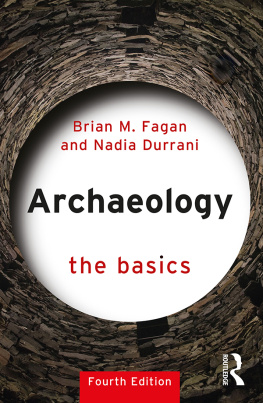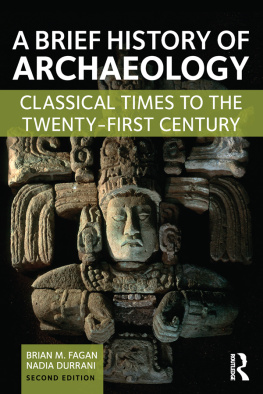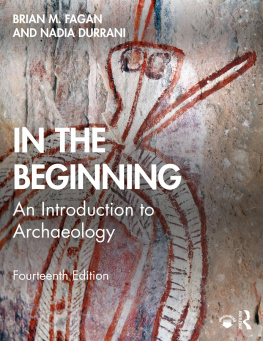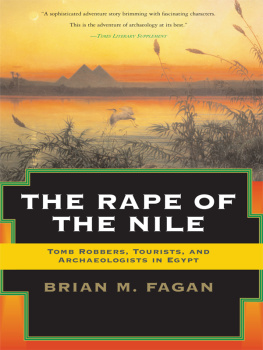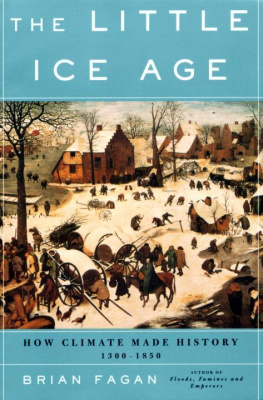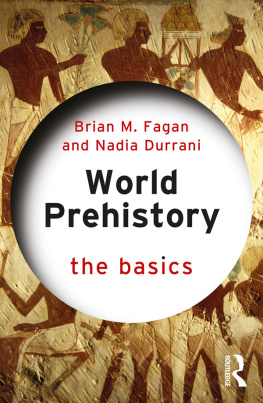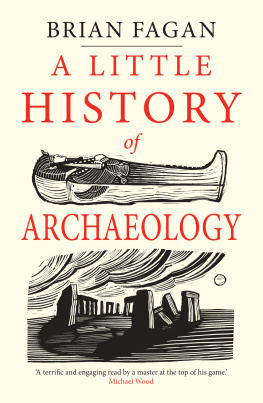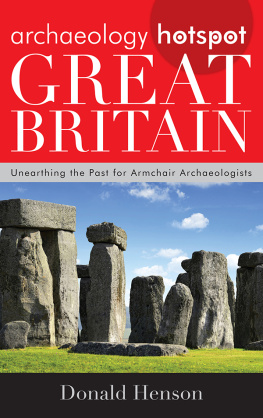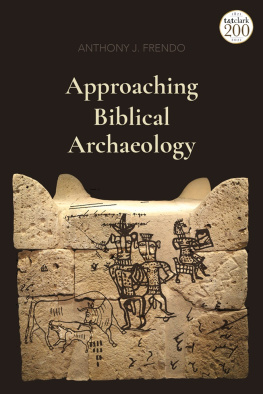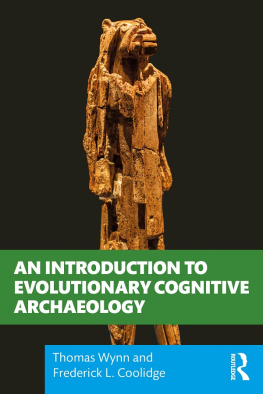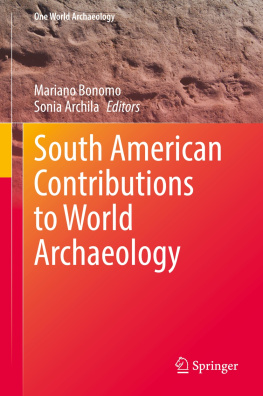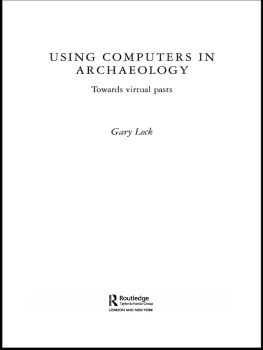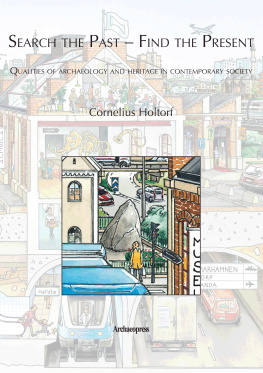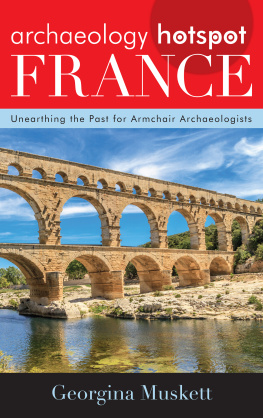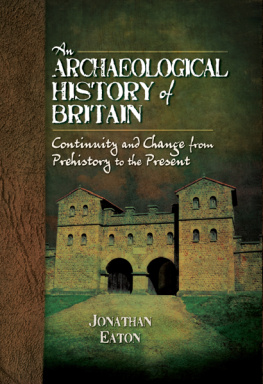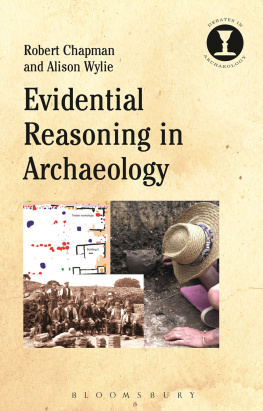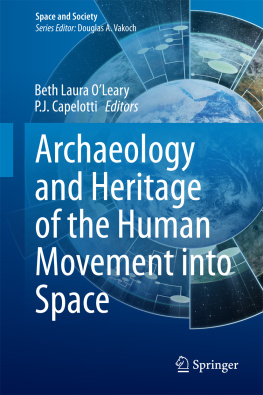
Archaeology: The Basics
Archaeology: The Basics, rewritten for this fourth edition, is a short, engaging book that takes the reader on a journey through the fascinating world of archaeology and archaeologists.
Written in a non-technical style by two experienced archaeologists and writers about the past, the book begins by introducing archaeology as a unique way of studying the entire span of the human past from our origins some six million years ago to today. The authors stress that archaeology is a global study of human biological and cultural diversity. After a brief look at early archaeological discoveries, they introduce todays multidisciplinary archaeology. Then they go on to describe the archaeological record, the archives of the past and the importance of contexts of time and space. How do we find archaeological sites and how do we explore them? Two chapters laced with examples examine these questions. Later chapters describe ancient technologies and how we study them, and the all-important subject of changing ancient environments and climate change. Zooarchaeology, flotation methods, and other ways of reconstructing ancient diet and subsistence lead us into the study of changing settlement patterns across the landscape. Next, they visit the people of the past, either as individuals or groups, calling on bioarchaeology to assist them. Two chapters discuss ancient culture change and the remarkable diversity of ancient societies, and they are followed by an exploration of the spiritual realm, the exploration of the intangible. The final chapter looks at the importance of archaeology in todays world. Rich in numerous examples and contemporary thinking about archaeology, this book tries to answer an important question: What does archaeology tell us about ourselves?
Archaeology: The Basics is essential reading for all those beginning to study archaeology and anyone who has ever questioned the past.
Brian M. Fagan is one of the worlds leading archaeological writers and an internationally recognized authority on world prehistory. He is Distinguished Emeritus Professor of Anthropology at the University of California, Santa Barbara.
Nadia Durrani is a Cambridge University-trained archaeologist and writer, with a Ph.D. from University College London. She is the editor and founder of Archaeology Worldwide magazine, and has authored and edited many articles and books on archaeology from every corner of the globe.
The Basics
The Basics is a highly successful series of accessible guidebooks which provide an overview of the fundamental principles of a subject area in a jargon-free and undaunting format.
Intended for students approaching a subject for the first time, the books both introduce the essentials of a subject and provide an ideal springboard for further study. With over 50 titles spanning subjects from artificial intelligence (AI) to womens studies, The Basics are an ideal starting point for students seeking to understand a subject area.
Each text comes with recommendations for further study and gradually introduces the complexities and nuances within a subject.
SPORT HISTORY
GERALD R. GEMS
ENGLISH GRAMMAR
MICHAEL MCCARTHY
PRAGMATICS
BILLY CLARK
COGNITIVE PSYCHOLOGY: THE BASICS
SANDIE TAYLOR AND LANCE WORKMAN
SOCIOLOGY (THIRD EDITION)
KEN PLUMMER
MUSIC COGNITION: THE BASICS
HENKJAN HONING
PERFORMANCE STUDIES
ANDREEA S. MICU
AMERICAN STUDIES
ANDREW DIX
PHYSICAL GEOGRAPHY (SECOND EDITION)
JOSEPH HOLDEN
WORLD PREHISTORY
BRIAN M. FAGAN AND NADIA DURRANI
FRENCH REVOLUTION
DARIUS VON GTTNER
RESEARCH METHODS (THIRD EDITION)
NICHOLAS WALLIMAN
ARCHAEOLOGY (FOURTH EDITION)
BRIAN M. FAGAN AND NADIA DURRANI
REAL ESTATE
JAN WILCOX AND JANE FORSYTH
MANAGEMENT (SECOND EDITION)
MORGEN WITZEL
SEMIOTICS (FOURTH EDITION)
DANIEL CHANDLER
For a full list of titles in this series, please visit www.routledge.com/The-Basics/book-series/B
Cover image: TBC
Fourth edition published 2022
by Routledge
4 Park Square, Milton Park, Abingdon, Oxon OX14 4RN
and by Routledge
605 Third Avenue, New York, NY 10158
Routledge is an imprint of the Taylor & Francis Group, an informa business
2022 Brian M. Fagan and Nadia Durrani
The right of Brian M. Fagan and Nadia Durrani to be identified as author of this work has been asserted by them in accordance with sections 77 and 78 of the Copyright, Designs and Patents Act 1988.
All rights reserved. No part of this book may be reprinted or reproduced or utilised in any form or by any electronic, mechanical, or other means, now known or hereafter invented, including photocopying and recording, or in any information storage or retrieval system, without permission in writing from the publishers.
Trademark notice: Product or corporate names may be trademarks or registered trademarks, and are used only for identification and explanation without intent to infringe.
First edition published 2001
Second edition published 2008
Third edition published 2015
British Library Cataloguing-in-Publication Data
A catalogue record for this book is available from the British Library
Library of Congress Cataloging-in-Publication Data
A catalog record has been requested for this book
ISBN: 978-1-032-02483-7 (hbk)
ISBN: 978-1-032-02481-3 (pbk)
ISBN: 978-1-003-18355-6 (ebk)
DOI: 10.4324/9781003183556
This is about what archaeologists do, which describes the basic methods we use to study the six million years of the human past. Theres little in these pages about gold-laden pharaohs, although we do mention Tutankhamun. Nor do we describe the mysterious, lost civilizations hidden in swirling mists, so beloved of popular fiction. Archaeology is about the way we go about our work, about the basic principles that underlie the discovery, excavation, and interpretation of what we call the archaeological record, the material remains of our past. Some of this book may be somewhat slow-moving, as it explores the fundamentals of what is now a highly sophisticated science that relies on all kinds of scientific disciplines. Our coverage is global, for archaeology is a global science, with important relevance in todays world, especially in the realms of climate change, environment, and human diversity. Weve written a companion book entitled World Prehistory, which is a basic narrative of the human past as uncovered by multidisciplinary archaeology. Many of the basics make for dry subject matter, so weve included numerous examples from all time periods and parts of the world, to add richness to what is, ultimately, a narrative about archaeology.
This is a volume for beginners, who know little or nothing of archaeology. We use as little technical jargon as possible. We do not dwell on the numerous controversies that surround archaeological research; we feel that the details are outside the scope of these pages. Nor do we discuss the ever-changing tapestry of archaeological theory. We mention some theories, such as those over the first settlement of the Americas, but only in passing. Our focus here is on the workings of archaeology rather than the results, although these appear frequently in each chapter. A Further reading section at the end of each chapter provides a brief guide to more detailed publications that cover the intricacies of the past in much more detail.
Next page
